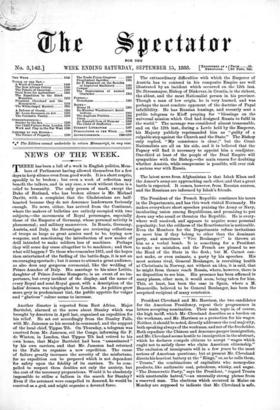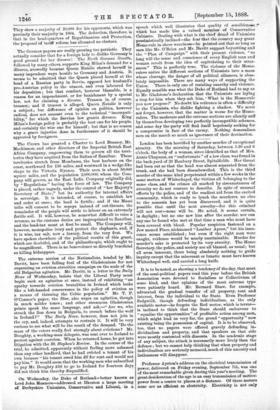President Cleveland and Mr. Harrison, the two candidates for the
American Presidency, repeat their programmes in letters accepting nomination. Their main topic is, of course, the high tariff, which Mr. Cleveland describes as a burden on the workman, and Mr. Harrison as a protection for his wages. Neither, it should be noted, directly addresses the real majority, both speaking always of the workman, and not of the freeholder. Both repudiate the Chinese and denounce pauper immigration, and Mr. Cleveland seems hostile to immigration in the abstract, which he declares compels citizens to accept " wages which ought not to satisfy those- who claim American citizenship." The exclusion of immigrants will in a few years be the most serious of American questions; but at present Mr. Cleveland directs his heaviest battery at the "Rings," or, as he calls them, " Trusts," the combinations of capitalists who monopolise products, like anthracite coal, petroleum, whisky, and sugar. " The Democratic Party," says the President, " regard Trusts with unutterable hatred,"—an unusually strong phrase from a reserved man. The elections which occurred in Maine on Monday are supposed to indicate that Mr. Cleveland is safe. They show a majority of 20,000 for his opponents, which was precisely their majority in 1884. The deduction, therefore, is that in the head-quarters of Republicanism and Protection, the proposal of tariff reform has alienated no electors. •



































 Previous page
Previous page